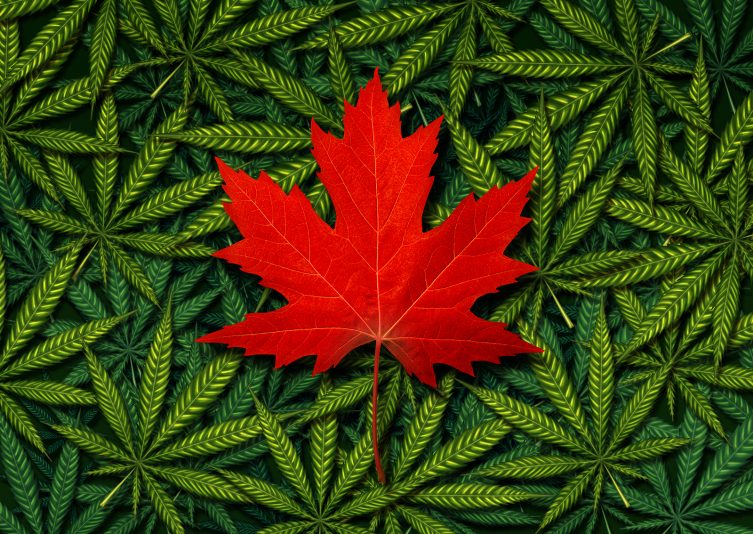Cannabis Act, Will It Ever Be Permitted To Have Weed At Work?
With the new Cannabis Act of Bill C-45, Canada will see all parts of the legislation for the Cannabis Act in full swing. This act put forth by the Liberal government will allow Canadians to carry up to 30 grams of marijuana, and grow no more than four plants in their residence for recreational use.
The Cannabis Act And Employment Law
Brian Greenspan, an employment lawyer, has become an authoritative voice on the topic of marijuana in the Canadian workplace.
Medical marijuana has been legal in Canada since 2001, and the number of registered Canadians has increased significantly over the past few years.
Greenspan highlighted that “fairly recent numbers have shown that there are over 130,000 Canadians registered to purchase medical marijuana. They are anticipating that by 2024 there will be approximately 500,000.”
With such an increase in the number of registered medicinal users, Greenspan said that many issues will arise for employers in regards to marijuana and the workplace.
“That is a huge jump, and a large number. If you think about that number: approximately two-thirds of the Canadian population is employed, and one-third of those individuals are working in safety-sensitive industries.
“In safety sensitive work environments it is incumbent upon the employer to balance their occupational health and safety obligations which requires that they provide a safe workplace, and their duty to accommodate for a disabled employee’s needs.”
An article published by the CBC addressed a few companies in safety-sensitive industries who are attempting to claim an outright prohibition on marijuana use among their employees. Part of the reason behind this are that it is difficult to gauge the present level of impairment, and an employee’s ability to safely perform a job’s duties.
Greenspan explained, “There is a lot of science and a lot of work that still has to go into the recreational and medical marijuana fields as a whole. There are many things that make this tricky, and different from other prescribed medications and alcohol.
“Testing is one of the largest issues. Measuring present impairment is relatively simple when it comes to alcohol tests. You can blow into a breathalyzer, and it will give you a fairly accurate reading of the person’s blood alcohol content which provides insight into their present level of impairment.
“With marijuana, it is not as straightforward. The detection period can vary based on testing procedure – (ie. oral, urine, hair follicle) – and a positive or non-negative test result is not necessarily a reflection of one’s present impairment.”
Of course, with the talks of legalisation swirling in political discourse, mainstream media and social groups, medical marijuana is being seen as a more positive front-line treatment to many ailments. However, not everyone agrees. Greenspan noted how some employers are increasingly concerned with the perceived relative ease in which individuals are able to obtain medical authorization to use cannabis for medical purposes.
“Some medical professionals and cannabinoid experts believe that marijuana is being prescribed as a first line of treatment in too many instances, and where better treatment options might exist. Employers then question whether their duty to accommodate extends to accommodate a worker’s choice of medication.”
How About Medical Marijuana?
When asked about whether medical marijuana is included in many company’s prescription medication policies, Greenspan noted that “It’s sort of the new frontier. In terms of benefits, and whether or not it covers medical marijuana, I think we are slowly seeing some movement in that direction, specifically with Health Spending Accounts.”
He also went on to explain how it differs from a standard prescription medication, as medical marijuana doesn’t have a Drug Identification Number (DIN), which has deterred some Canadian health insurers from adding it to their benefit plans.
Ultimately, upon legalisation of marijuana, many organizations will have to revisit their policies on marijuana as an illegal off-duty substance, or activity, and many policies will need to be changed to reflect a new reality.
Greenspan said that there are factors that won’t change, “Employers still have a right to require that their workers show up to work sober, and ready to do their job. But in terms of off-duty conduct, it is similar to how alcohol is treated in the sense that it is no longer an illegal substance as of, what is anticipated to be, July 1, 2018.”
Canada as a whole is going to see a large shift in a year’s time. The anticipated full-legalisation of marijuana is something that has been a topic of discussion for many years, if not decades. With the Liberal government pushing for the Cannabis Act to take effect, employers are going to be faced with a new reality; one in which they may have to accommodate for many more marijuana users.
Hummingbird Lawyers LLP has two offices for your convenience. Providing qualified, skilled and experienced lawyers in Toronto and lawyers in Vaughan, we are committed to giving our clients the convenience, expertise and guidance they need.



Great Post! The Cannabis Act’s legalization of recreational cannabis use has prompted a need for clear policies, open communication, and education in workplaces. Finding the right balance between ensuring workplace safety and respecting employees’ rights is crucial for creating a harmonious and productive work environment in the era of legalized cannabis.